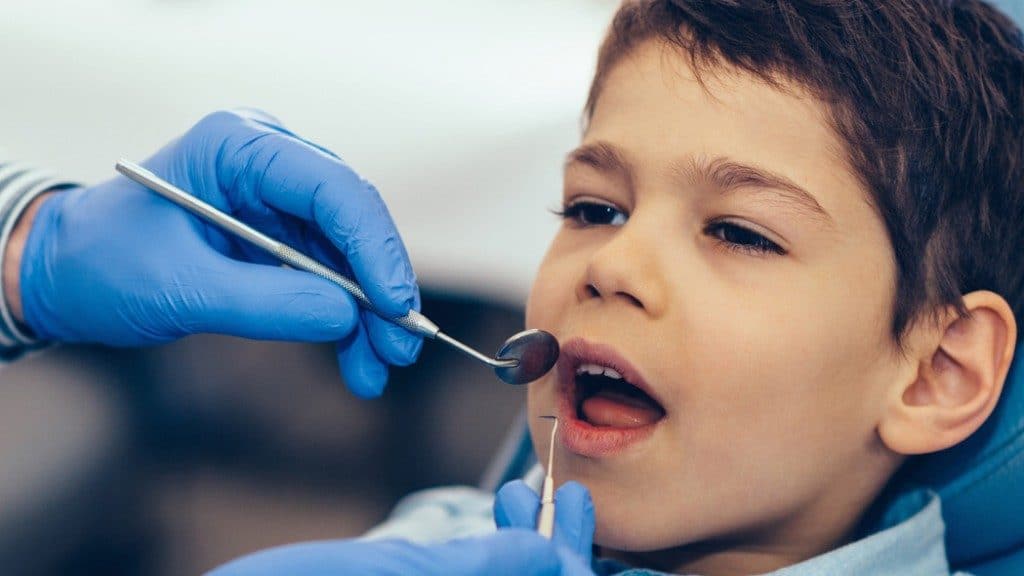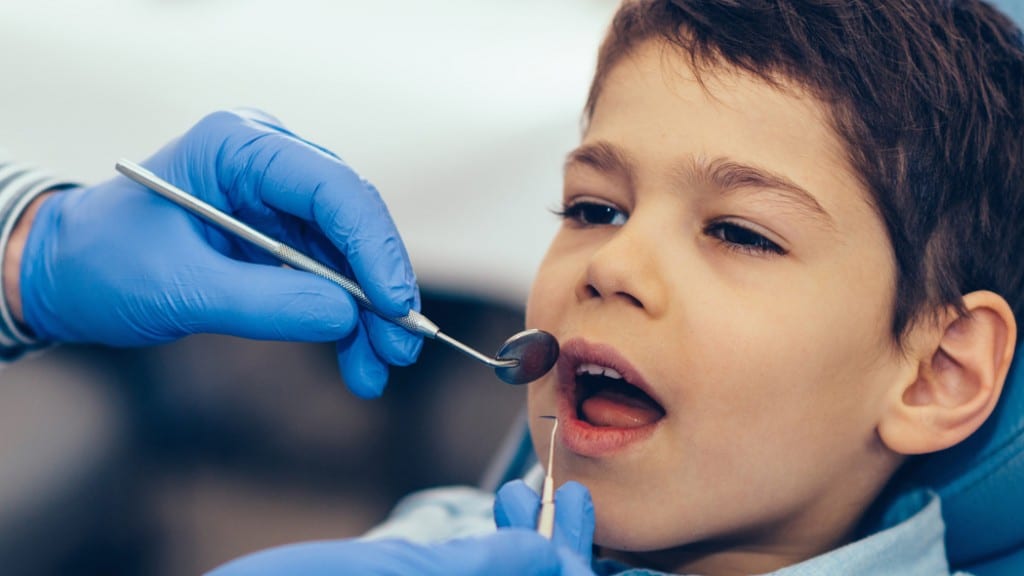 The American Dental Association is stating that a child should first see a dentist on his or her first birthday. And whether or not you’ve followed this rule is up to you, but there are certain times when your child should see a dentist. Not only for their first visit, but when there are certain changes or conditions occurring in their mouth, you may want to pick up the phone and call the dentist. Here are eight signs your child should see an oral healthcare provider.
The American Dental Association is stating that a child should first see a dentist on his or her first birthday. And whether or not you’ve followed this rule is up to you, but there are certain times when your child should see a dentist. Not only for their first visit, but when there are certain changes or conditions occurring in their mouth, you may want to pick up the phone and call the dentist. Here are eight signs your child should see an oral healthcare provider.
First Birthday
As mentioned above, the American Dental Association suggests children should see a dentist on their first birthday. If your child is coming up on their first birthday or if it has recently passed, then it is a good idea to have that visit scheduled. According to 44 West Dental, a dentist in Grandville, “Your child’s oral health can be influenced from a first dental visit. During this time, a professional oral healthcare provider can make note of any issues that could be remedied at an earlier age.”
Pain
If your child is suffering from any pain in the mouth or teeth, you should consider bringing them to the dentist. While this could be something small like a toothache, it could also result in something that requires emergency dental services. While you don’t want your child to be in pain, leaving a painful tooth or gum issue unattended could also create even bigger problems down the road. In order to err on the side of caution, it’s better for you to simply schedule the dentist visit and have a professional look and see if there are underlying issues that should be addressed.
Chipped Teeth
Children can be rough, and if your child has a chipped tooth, you should be making an appointment at the dentist. While a chipped tooth won’t create any health hazards for your child, it could be unsightly. Plus, the reaction from the chipped tooth could have caused other issues you simply cannot see, so it’s a good idea to have a dentist do an x-ray. Just keep in mind that a chipped tooth will not require you to rush to the dentist, so don’t get in a panic if this occurs.
Overbite/Underbite
Teeth are finicky bones, and they often don’t grow in perfectly straight. In fact, many people suffer from an overbite or an underbite. In some instances, the underbite or overbite is so minimal that it isn’t noticed. However, sometimes these issues can be significant where they cause other dental or oral issues. If you notice that your child has a severe underbite or overbite, it would be a good idea to schedule a dental visit and have it looked at by a professional.
Sensitivity
If your child has overly sensitive teeth, whether to cold or hot foods, then you should have them visit the dentist. While this may not be anything serious, it’s always a good idea to make a professional aware of the situation. Plus, your child’s dentist may be able to let you know if it could be a simple fix or if there are other things your child may need to do to help reduce the sensitivity.
Spotting
While everyone would love pearly white teeth, there are times when your child’s teeth may be spotty with white dots or even brown dots. Sometimes this could be a sign of a cavity while it could also be a sign of broken tooth fragments. Either way, you need to have your child see the dentist sooner rather than later to ensure that their oral health is fine and any issues are properly treated.
Irritated Gums
Does your child complain that their gums hurt or do you notice swelling or redness on the gum line? If so, you should bring your child to the dentist. Irritated gums are a sign of plaque and gum disease, and the longer it sits untreated, the worse it is to handle. Pay close attention to your child’s mouth when he or she brushes their teeth and make an appointment if you notice any issues have arisen.
Loose Teeth
Children are supposed to lose their teeth, but when your child’s teeth are loose, seeing a dentist can ensure it’s okay. For instance, your child shouldn’t lose their back teeth until they’re about 10 years old, so losing these teeth at an early age could be a sign that something’s wrong. In addition, if your child isn’t losing their teeth, you’ll also want to visit with a dentist.
Your child’s oral health is extremely important, and these telltale signs will help you determine when it’s right to bring your child to the dentist.
Recent Posts
- Castor Oil For Better Hair Growth: Is It Myth Or Fact?
- Exploring the Differences Between Sermorelin, Ipamorelin, Ibutamoren, GHRP2, and GHRP6: Understanding Their Role in Human Growth Hormone Regulation
- Unraveling the Mystery: Understanding the Causes and Prognosis of Ventricular Tachycardia Without Apparent Heart Disease
- Understanding Grandparents’ Rights in Oklahoma: Navigating Visitation and Legal Protections
- 10 Reasons to Consider Hypnotherapy for Your Health

